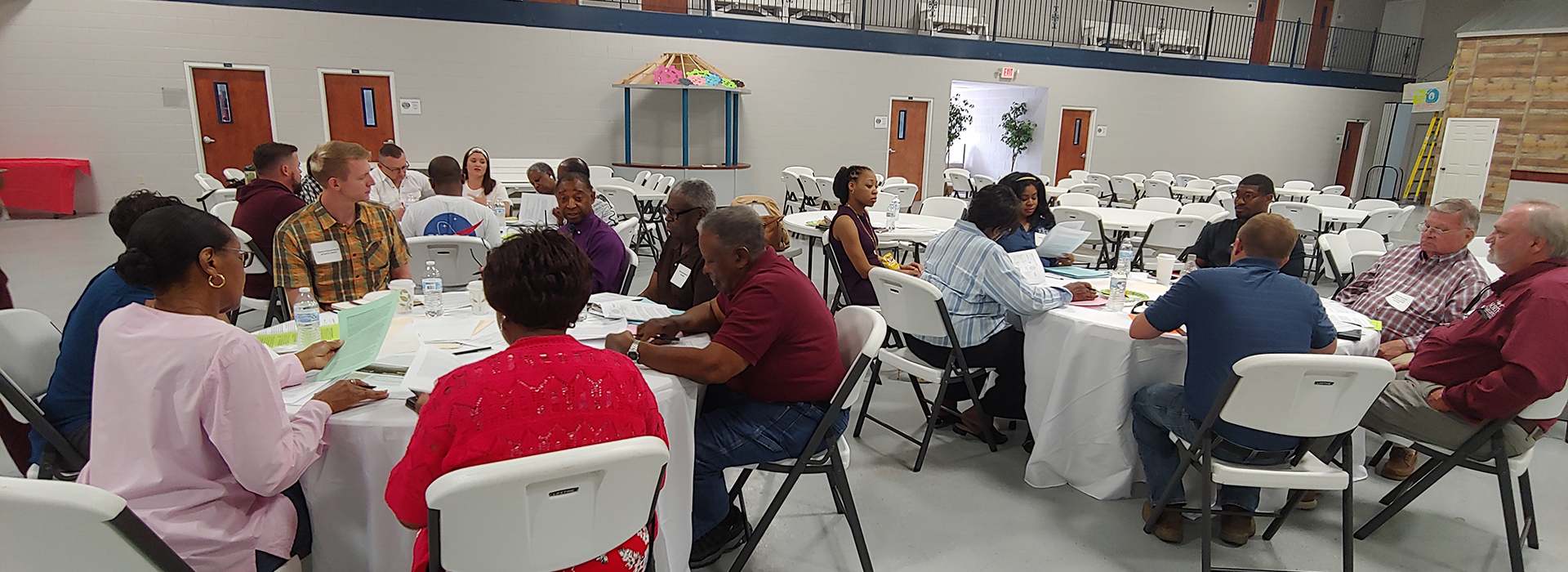Georgetown County has experienced four consecutive years of extreme weather events. In each case, this coastal county has experienced threats to life, impacts to the ecosystem, infrastructure and housing damages, and lost business revenue and school days, among other issues. In the past year, the Georgetown Climate Adaptation Project engaged over 200 community members, students, non-profit staff, and local government staff and elected officials in climate adaptation planning in Georgetown County. These efforts were undertaken through the NOAA Science Transfer Grant, “From NECAP to GCAP: Transferring Climate Adaptation Knowledge and Tools from New England to Georgetown, SC”
Many coastal communities are challenged by financial limitations and burgeoning infrastructure needs that restrict their ability to focus on long-term planning. Planning for climate adaptation involves trade-offs and should incorporate multiple stakeholder perspectives. As part of the Georgetown Climate Adaptation Project, the NERR Coastal Training Program and local partners hosted community workshops simulating a community decision-making meeting. By providing participants with realistic, but fictionalized scenarios in which difficult trade-offs have to be made, simulations provide a useful roadmap of productive conversations around climate adaptation planning. Stepping into someone else’s shoes in the context of climate adaptation planning is an effective approach for increasing empathy and understanding for differing priorities and concerns. Participants used down-scaled climate projection data specific to Georgetown County to help inform their decision making when weighing possible climate adaptation solutions.
The project team held four community workshops in diverse communities within Georgetown County, along with two workshops for high school and college students and a Train-the-Trainer workshop. CTP partnered with trusted community ambassadors to host these workshops. Over 200 community members of all ages and backgrounds participated, including decision-makers from non-profits, faith organizations, and local government staff and elected officials.
The CTP Coordinator and partners presented results from surveys of community workshop participants to Georgetown County Council. Sharing the results from across the county provided a comprehensive view of the knowledge, perceptions, and attitudes of communities throughout the county. Participants expressed a high level of concern about impacts of climate change in Georgetown County. However, debriefing discussions revealed that communities within the county often differ about which impacts are of the greatest concern and which solutions are most favored. A major take-home was that all communities in the county considered a consensus-based approach and stakeholder engagement to be invaluable to the planning process. Additional details and the complete report are available on the project website here.



